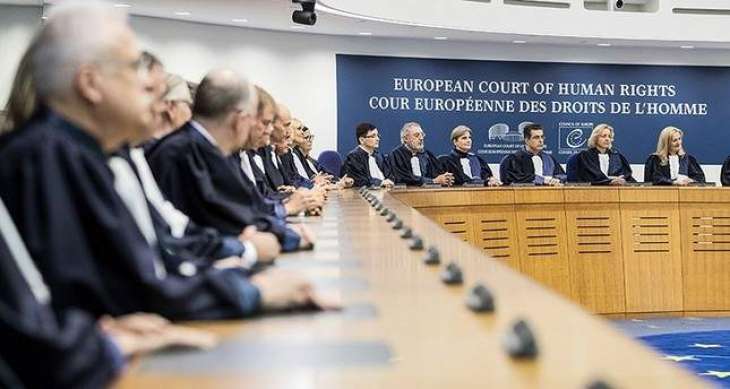The European Court of Human Rights (ECHR) ruled on Thursday that right to freedom of expression cannot justify disparaging religious doctrines, and therefore recognized that a fine imposed on an Austrian citizen for her insults toward Islamic prophet Muhammad was lawful and did not violate her freedoms.
MOSCOW (Pakistan Point News / Sputnik - 25th October, 2018) The European Court of Human Rights (ECHR) ruled on Thursday that right to freedom of expression cannot justify disparaging religious doctrines, and therefore recognized that a fine imposed on an Austrian citizen for her insults toward Islamic prophet Muhammad was lawful and did not violate her freedoms.
According to the court, the Austrian applicant, E.S., born in 1971, held two seminars "Basic Information on Islam" in 2009. Noting that prophet Muhammad married to his wife Aisha, when she was supposed to have been only a nine-year-old girl, she wondered how to call it, "if it is not paedophilia." In February 2011, the woman was convicted by a Vienna court for disparaging religious doctrines. In December 2011, another court dismissed her appeal, while, in late 2013, the Supreme Court refused to renew proceedings. E.S. as a result filed a complaint with the ECHR, arguing that her statements were part of a public debate and not aimed at defaming the prophet.
"In today's Chamber judgment in the case of E.S. v. Austria (application no. 38450/12) the European Court of Human Rights held, unanimously, that there had been: no violation of Article 10 (freedom of expression) of the European Convention on Human Rights," the court said in a press release.
The ECHR ruled that the Austrian courts "comprehensively assessed the wider context of the applicant's statements and carefully balanced her right to freedom of expression with the right of others to have their religious feelings protected."
The ECHR agreed with qualifying E.S.'s statements as "going beyond the permissible limits of an objective debate" and classifying them as "an abusive attack on the Prophet of islam," which could ignite prejudice and "threaten religious peace."




